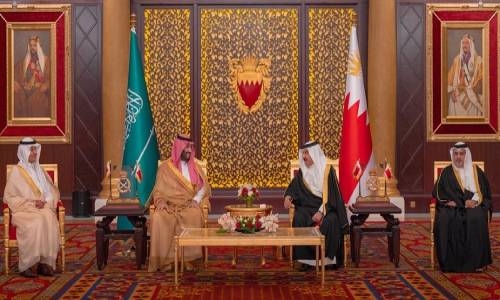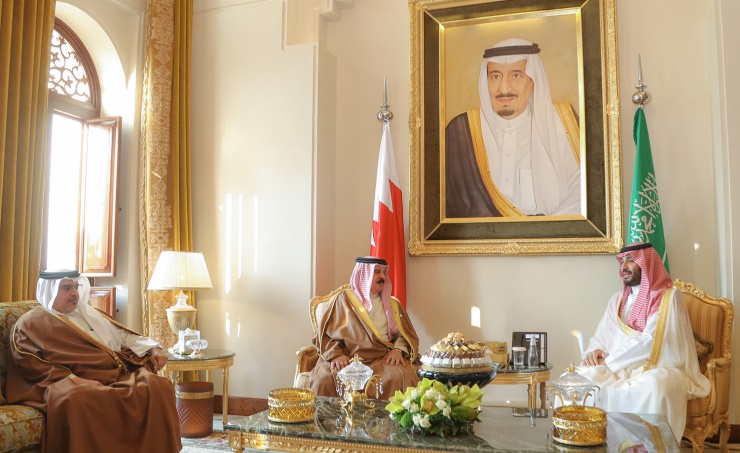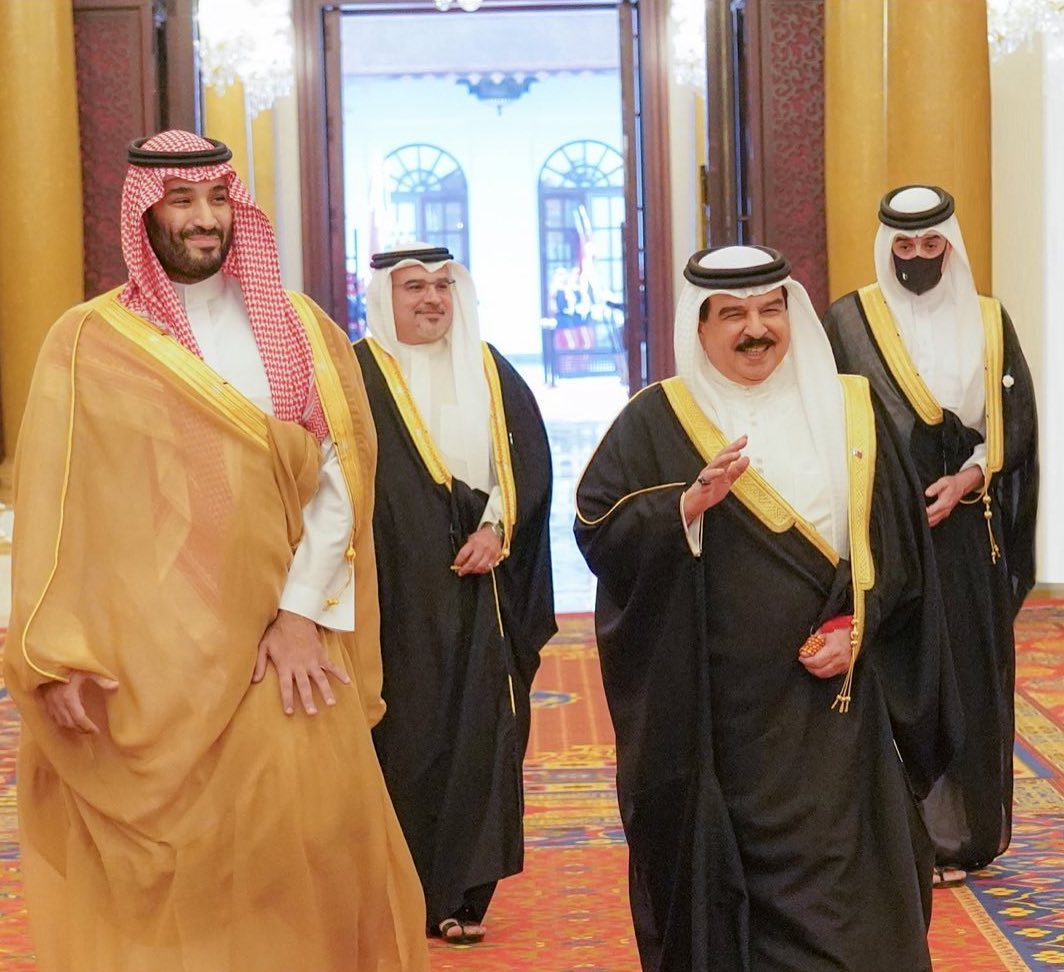Iran nuke talks should take into account regional interests: Bahrain leaders, Saudi Crown Prince
TDT | Manama
The Daily Tribune – www.newsofbahrain.com
Determination to strengthen political cooperation and formulate common positions on all issues, including that on Iran, Yemen, Syria, Afghanistan, Palestine and other issues, was voiced strongly by Bahrain leaders and the Saudi Arabian Crown Prince during talks held earlier yesterday.
The talks were by His Majesty King Hamad bin Isa Al Khalifa, and HRH Prince Mohammad bin Salman bin Abdulaziz Al Saud, the Crown Prince, Deputy Prime Minister and Minister of Defence of Saudi Arabia, in the presence of HRH Prince Salman bin Hamad Al Khalifa, the Crown Prince and Prime Minister.
Iran’s nuclear and missile threat, their highnesses said, should be dealt with more seriously and effectively in a way that ensures regional and international security, the principles of good neighbourliness and respect for UN resolutions and international legitimacy.
“Actions taken in this regard should spare the region from all forms of destabilising activity,” their highnesses said, urging world nations to take into account the interest, security and stability of the countries of the region.
This came as world powers and Iran were locked in talks on reviving their nuclear deal yesterday. The talks resumed on Thursday with the United States and Israel - which is not a party to the 2015 deal - hinted about the possible economic or military consequences if diplomacy fails.
Discussions held by Bahrain leaders and the Saudi Crown Prince yesterday in the Kingdom also focused on developing Bahrain-Saudi ties, and enhancing them in all fields. They also discussed the latest developments in the region and the need for reaching a united position in all regional and inter[1]national issues for the common interest.
Al Ula declaration
Their highnesses also spotlighted the Al Ula declaration signed with Qatar during the 41st Gulf Cooperation Council Summit at Al-Ula in Saudi Arabia. The deal called for full implementation of the vision of King Salman that was approved by the Supreme Council at its 36th session in December 2015 following a specific timetable and careful follow-up.
The meeting further stressed the need for completing the economic integration of GCC nations, joint defence and security.
Two-state solution
HM King, HRH Prince Muhammed and HRH Prince Salman called for coordinating positions to enhance the solidarity and stability of the Gulf Cooperation Council countries and develop political partnerships with the international community, regional and international organisations.
They also stressed the importance of reaching a comprehensive solution in the Palestine-Israeli conflict by activating the two-state solutions that guarantee Palestinian people the right to establish their independent state on the 1967 borders with East Jerusalem as its capital.
The meeting also called for a comprehensive solution to the Yemeni crisis by preserving unity, safety, sovereignty and independence and rejecting interferences in its internal affairs.
Stop terrorist attacks
HM King, HRH Prince Mohammed and HRH Prince Salman voiced their strong condemnation of the continued targeting of airports and vital installation in Saudi Arabia by the terrorist Houthi militia.
On the situation in Iraq, their highnesses welcomed the success of the electoral process, calling on the Iraqi government to continue working on security, stability, eliminating terrorism and foreign interference in internal affairs.
The meeting affirmed the importance of comprehensive reforms to overcome the Lebanese crisis. HM King, HRH Prince Mohammed and HRH Prince Salman urged Lebanon not to act as a launching pad for terrorists and an incubator for terrorist organisations and groups, such as Hezbollah, to target security and stability of the region.
Hezbollah, the meeting viewed, is a source of drugs that threaten the safety of societies. On the Syrian issue, the two sides affirmed that the solution to the Syrian crisis is political and hailed the efforts of the United Nations and its Special Envoy to implement relevant international resolutions.
On the Libyan crisis, the meeting stressed the importance of reaching a political solution and the need to withdraw mercenaries, foreign fighters and foreign forces from Libya. In their comments on Afghanistan, the two sides called on not to allow Afghan a haven for terrorists and extremists.
The leaders condemned the recruiting of Afghan refugees in the various conflict areas and expressed the importance of supporting relief efforts and humanitarian work in Afghanistan.
Related Posts



